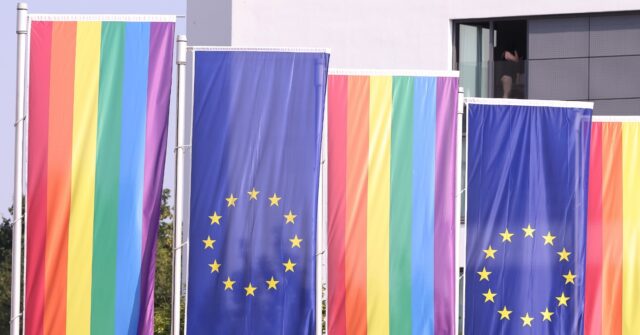In a monumental decision, the European Court of Justice (ECJ) has mandated that all member states of the European Union must acknowledge gender changes recognized within other countries in the bloc. This landmark ruling arose from the case of Arian Mirzarafie-Ahi, a dual citizen of Britain and Romania, who faced legal challenges when seeking to have a new birth certificate issued in Romania after obtaining a gender transition certificate in the UK. The Romanian authorities’ refusal to accept this document violated EU law, prompting the ECJ to assert that national laws cannot impede the recognition of legal gender changes validly obtained in another member state. As a result, all EU countries are now required to treat gender transition documents from any member state as legally binding, reinforcing the principles of free movement and residence across the Union.
The ruling specifically addressed the issue of recognition of gender identity changes and names, establishing that EU member states are obligated to accept and recognize such changes once legally acquired in any of the 27 members. The ECJ emphasized that the refusal to recognize these changes not only undermines individual rights but also obstructs a citizen’s freedom of movement. The judgment sent ripples across the EU and has set a precedent, ensuring that similar cases will now follow suit and that individuals can expect their gender recognition to be respected regardless of where they move within the EU. This development demonstrates a significant extension of LGBTQ+ rights across the European Union, promoting equality and non-discrimination in legal matters.
However, the ruling may also ignite further conflicts within the EU, particularly as it challenges national legislation in member states with prohibitive laws regarding gender recognition. For instance, Hungary has been a focal point of tensions surrounding LGBTQ+ rights, having established legal barriers that prevent individuals from changing their gender legally. The ECJ’s recent ruling undermines these laws, possibly leading to subsequent legal battles between national governments that adamantly oppose such recognition and the overarching EU regulations designed to foster unity and equal rights among member states.
Critics of the ruling, like Rodrigo Ballester from the Mathias Corvinus Collegium think tank in Budapest, have voiced strong opposition, suggesting that the ECJ’s judgment constitutes judicial overreach and an ideological push for further integration of EU laws at the expense of national sovereignty. Ballester’s remarks highlight a growing sentiment among some member states that feel increasingly pressured by the EU to conform to its progressive stances on social issues. The conclusion drawn by these critics is that the ruling from the top EU court neglects the implications of Brexit and further complicates the relationship that member states like Hungary have with European institutions.
The tension between the EU and Hungary is emblematic of a broader crisis surrounding LGBTQ+ rights, which has become a contentious issue in the region. Hungary’s Prime Minister Viktor Orbán has expressed dissatisfaction with EU intervention in what he perceives as domestic affairs, calling the EU’s actions colonialist in nature. In light of the recent ruling, the Prime Minister may find himself in a position where further resistance against EU mandates could lead to economic repercussions, given past instances where the EU has withheld funding in response to Hungary’s controversial laws. This tension reflects a deeper ideological divide that could threaten the cohesion of the European Union in the long term.
Ultimately, the ECJ’s ruling serves both as a beacon of hope for individuals seeking recognition of their gender identity across Europe and as a potential flashpoint for ongoing struggles between national legislation and EU laws. As debates continue, the impact of this ruling may resonate beyond legal frameworks, influencing social attitudes and the balance of power within the EU. For proponents of LGBTQ+ rights, the decision marks a significant victory and a step toward greater acceptance and protection of individual rights across Europe. However, for critics, it poses serious questions about the future of national sovereignty and the capacity of EU institutions to impose change across diverse political landscapes.

